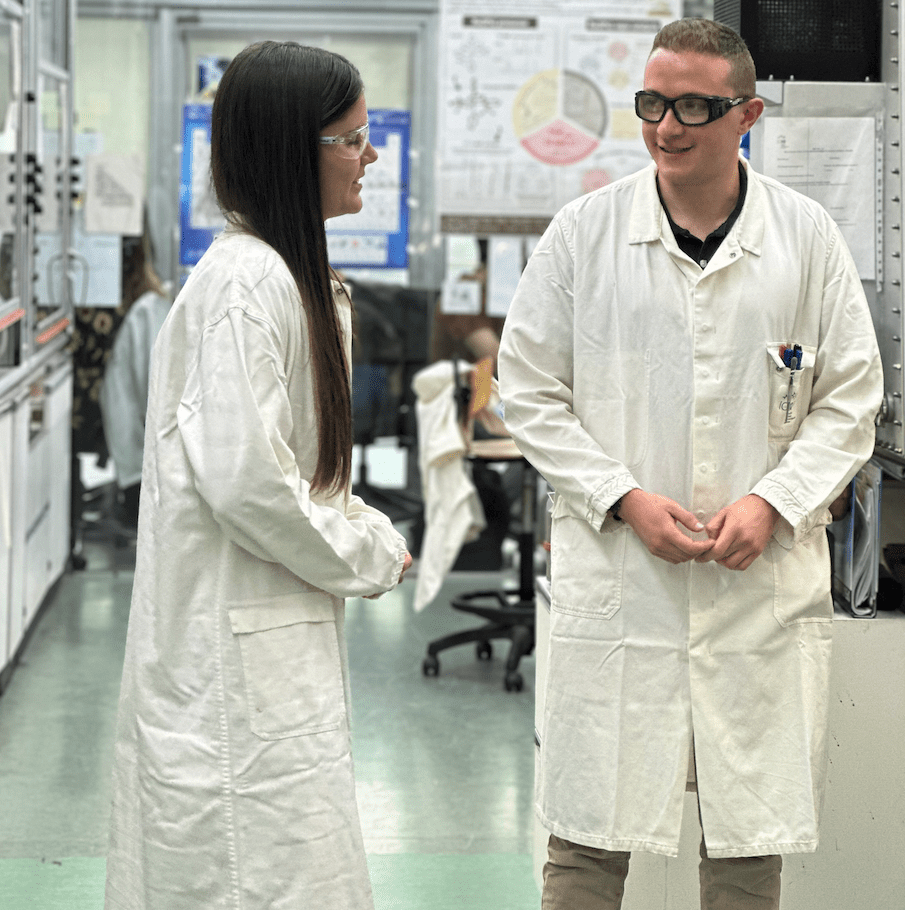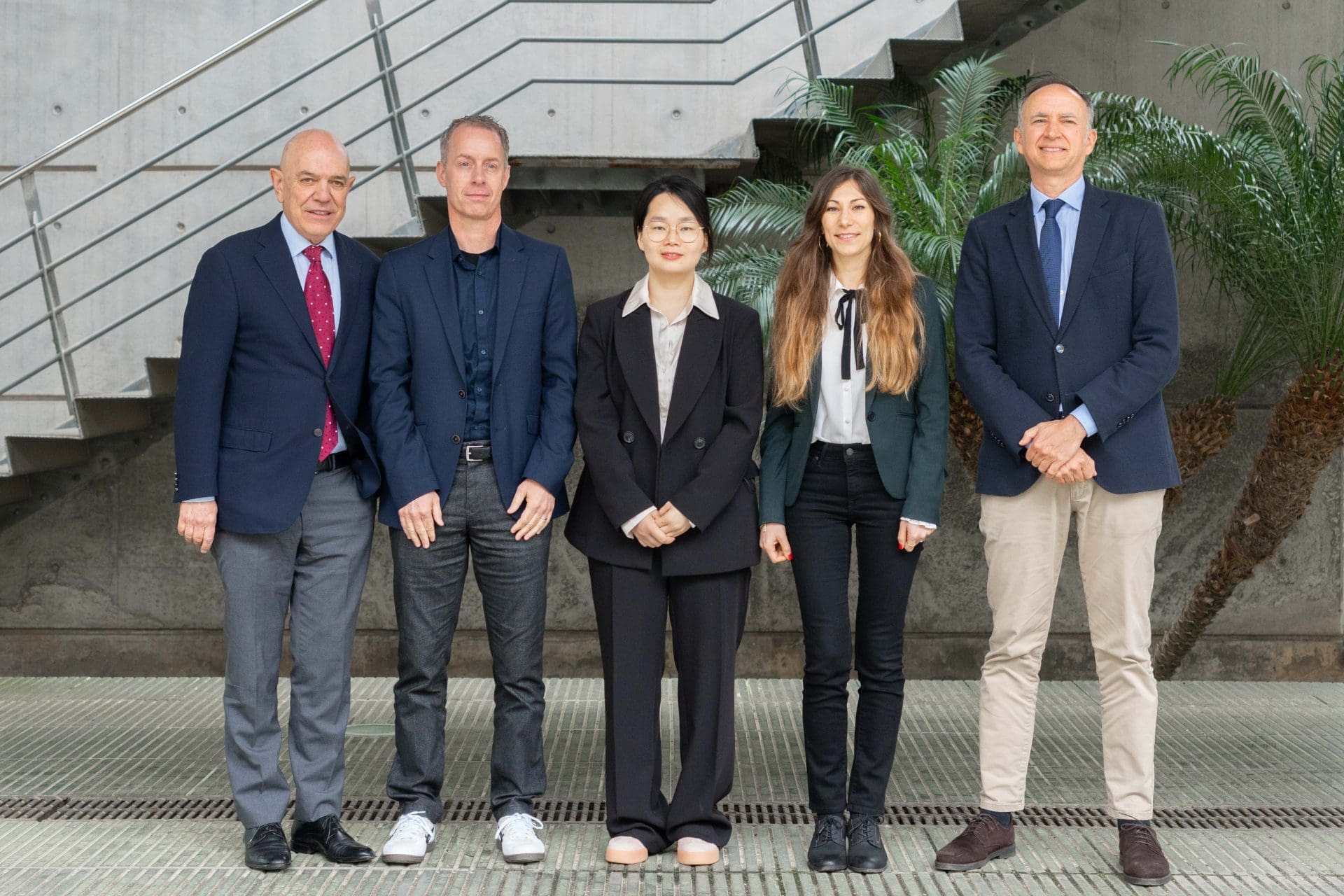Three ICIQers participate in the 71st Nobel Laureate Meeting in Chemistry
9th August 2022 – The 71st Nobel Laureate Meeting, held in Lindau (Germany) in early July, gathered hundreds of young researchers from around the globe and about 30 Nobel Prize winners for a week of networking and career discussion. In this edition, centred on Chemistry, three ICIQers attended the prestigious meeting: Dr. Vasileios Tseliou, a postdoctoral researcher in the Melchiorre group; Dr. Craig Day, a former PhD student in the Martin group; and Dr. Franco Della Felice, a former postdoc in the Echavarren group – two ICIQ alumni also attended: Dr. Carla Casadevall and Dr. Luis Lanzetta. Here’s their take on the experience:
Can you briefly describe your experience at Lindau?
CD: Lindau was a unique contrast of young and old scientists with the Nobel Laureates being equally as enthusiastic as the young scientists attending. To me, the networking aspect was a highlight of the event, in which you got to meet and gain some of the perspectives of the most successful chemists but also to talk to many people who were at a similar stage in their careers as myself.
FDF: It’s an uplifting week, the experience makes you more ambitious. Listening to the stories of the laureates on how they overcame their problems and obstacles makes you think about your career in another way. Most describe their professional path as nothing out of the ordinary, which makes you believe that you too can achieve great things. Talking to other participants, we all felt this surge in ambition and a desire to go home and start writing projects, I made many new connections and hope they will be fruitful!
What would be your take-home message from the Lindau meeting?
VT: I was very impressed by the younger scientist’s activism for diversity – in science and elsewhere. This was very motivating for me. The new generation of scientists doesn’t accept unfairness, or the lack of diversity that some disciplines may have and are working to change this.
CD: A common theme I felt was that you shouldn’t be complacent with your research or yourself. A lot of success is moving forward into what is unknown and pushing your boundaries. This allows you to look at problems with a unique perspective and to provide unique questions and answers.
What seminar did you enjoy the most? Why?
CD: There was a seminar of Q & A with Richard Schrock with his wife, Nancy Carlson, was there too. For quite a bit of the seminar, Nancy was answering questions related to him winning the Nobel Prize and their life together. It was interesting to hear both of their opinions about their journey together and something you don’t normally hear. The personal aspects to someone’s life are often defining in their research but are often easily looked over.
FDF: I really enjoyed the panel discussions, where a moderator talked to one of the laureates and then answered questions from the young researchers in the audience. The answers the laureates gave to the young researcher’s questions were really insightful and you could understand the difficulties they went through. They also gave good tips on how to start an independent career. I really liked Peter Agre’s talk. I admire his will and determination to overcome difficulties. During other laureate’s lectures, he would sit next to someone and start asking questions “What do you think about this? Do you think it’s possible?” He’s super friendly and open.
VT: I liked the open exchange with William Kaelin. Aside from his discovery of how cells sense and adapt to oxygen availability, I liked his mindset: how he motivated people to do research and overcome the difficulties they will find during their careers. He came with the aim of helping the young researchers, so he took his time understanding the question asked and giving the answer that would be most helpful to them. He made us think not only about the direct impact of what we do but also about the long-term consequences of our research and its applications.
Can you share something that surprised you?
FDF: Everything, it was an outstanding event! I was surprised by the humility of most laureates; they were just one more person among all the scientists gathered. If you were alone at some moment, it was easy that one of them would approach and greet you and start talking about your work. They would always say that the meeting is for the young researchers attending, so they were more than willing to come up and chat.
VT: I was very impressed by the younger scientist’s attitude towards unfair situations. Actually, there was this one talk where one of the laureates was giving his opinion on the inclusion of minorities in science, and the audience showed its displeasure in action. That was a strong answer from the young researchers to “established” opinions.
Is there anything you learnt from the talks that you could apply to your everyday work?
VT: Now that I’m a postdoc and will start gaining responsibility as a researcher, I’ll do my best to create the best environment possible for my colleagues, speaking out against disrespectful behaviours. I will also try to think about my research differently: not only about experiments but about the implications my research can have in the future. I want to focus my energy on work that will have an impact.
CD: I don’t know if there was a specific lesson learnt, but I would say it was a great place to really appreciate chemistry and the impact your work can have on the world. I think this feeling is something that carries with you and helps stay motivated on the day to day.
FDF: The motivation the meeting instilled into me. The talks and seminars are all available online, so we can always go back and listen to them. But what I want to remember is this feeling of empowerment, that I can do all that I set myself to do. The experience somehow encouraged us not to be afraid to propose outlandish projects and to believe in our own ideas.
Related news

Let's create a brighter future
Join our team to work with renowned researchers, tackle groundbreaking
projects and contribute to meaningful scientific advancements







 14-03-2025
14-03-2025 















